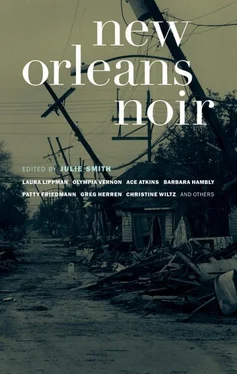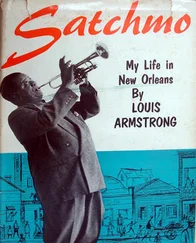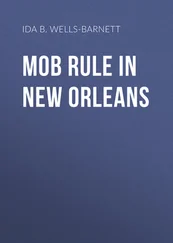The Court : It’s your life that’s involved. Don’t you care about that?
Mr. Masson : I care about my life just as much as you care about it.
The Court : Don’t you want to protect it?
Mr. Masson : Do you want to protect it?
Late as I was, I was finally doing the right thing by Frank, and set about business.
First, I confirmed with the senior barflies at the Star Lounge that a puffy-faced white guy used to pal around there with my brother.
“Oh, he still comes by here,” according to somebody called Shug. “Real wormy kind of a man, just sit over to the end of the bar and complain. I ain’t saying we don’t got our share of complainers, but things that guy said — well, seems to me he was creeped by his own life.”
Before I left, Shug told me, “Your brother was all right, you know? Sure, I know what they say he did. But that’s lawyers making the charge. You know what your brother said about lawyers one time?”
From whispers of a long-ago night I had a fair idea.
“The Devil makes his Christmas pie with lawyers’ tongues,” said Shug. “That’s Frank’s own words. Oh, but he could talk some.”
Next, I searched for a record of a safe deposit box rented to one Philip Malreaux, after which I pulled a few strings, thanks to my official capacity as a lawman, and quietly obtained a court order to open it up and inspect the contents. I had a fair idea what I’d find.
It was not difficult to crack Malreaux after a long talk at the Star Lounge, accompanied by a fifth of Johnnie Walker Red, which mostly he drank while softly weeping as I told him what I’d found — and what I made of it. As I was looking into Malreaux’s white face, I saw my dead brother’s own black dog face; it was as if the two of them, Philip and Frank, were some old married couple who came to resemble one another.
I asked Malreaux if he’d care to tell a detective to back up my theory of what really happened to the lowdown woman who shattered his life as bad as Katrina shattered the city. He took a long pull of Johnnie Walker before saying, “Yeah, that’d be all right.”
As we rode in a taxi together down to police headquarters on South Broad Street, Malreaux said, “You being Frank’s brother, I offer my word of honor — I’ll protect you like Frank protected me.”
That’s when I realized we both knew the all-around score: He knew that I knew that he knew.
“Deal,” I said to Malreaux. “Just say what I tell you to say.”
Finally, I had a little talk with the boss — the man who had hired me and sent Frank to Angola.
“You found what ?” he said, annoyed. I had interrupted the tuna sandwich he was eating at his desk.
“The axe.”
“Don’t matter about a murder weapon all this time after the fact.”
“It matters if it’s new evidence — grounds for a new trial for my brother.”
“Who is a dead and gone man.”
“True, but that doesn’t mean the case is. Besides the axe, there was a whole lot of cash in Philip Malreaux’s box.”
“I don’t see how that matters.” The boss used the back of his hand to wipe a string of tuna off his lip. “That money could have come from anywhere, anytime.”
“Including it could have come from Eugenia Malreaux’s wall safe, a strong possibility I’m having the forensics squad consider.”
In the worst way, I wanted Frank’s name cleared. Frank might have said I wanted this in the best way.
And — hoo-whee! — what would my aunt-tee say if things turned out to clear Frank? What would any of my chilly relations say when it was written up in the newspapers the way I reasoned how things really went down in connection with the death of Eugenia Malreaux?
Frank helped himself somehow to Miss Eugenia’s wall safe, that’s for certain. But legally speaking, maybe there was a way of muddying up certainty. That thumbprint of Frank’s? He must have brushed the dial of that safe a hundred times reaching for tools to tend the old lady’s tulip trees. Frank’s fingerprints that no doubt would be found all over the murder weapon? Well, of course Frank’s prints are on that axe — probably a hundred times over the years of pruning trees.
But why would Frank murder Miss Eugenia anyhow? If it was true what was said at his trial and he’d stolen jewelry from her before, then he hardly needed a goose that laid golden eggs to be dead. Philip Malreaux, on the other hand, had plenty of motive, which he’d been brooding over since his awful boyhood; since the first night his mama raped him.
Philip’s fingerprints were never found on the wall safe in the brick shed. Why not? Maybe he was careful to wear gloves. But if Philip’s fingerprints showed up on the axe, which was likely, it was for the simple reason that nobody but the owner of a safe deposit box account is allowed to put anything into it. So why would he do that?
Maybe Philip Malreaux came across that axe before the police did and ran down to the bank with it, thinking his buddy Frank Masson must have got liquored up and killed Miss Eugenia on account of hearing so many stories about the old bag that you could toss your lunch.
Having seen a bunch of loose ends in every single criminal matter that ever crossed my desk at the D.A.’s office, I was unsurprised by the case of my own brother and his wormy pal. For instance, how come Frank took the fall for murdering Miss Eugenia? Well, maybe it was his way of doing a good deed for somebody before playing a trick on the calendar.
And there’s the little matter of what everybody overlooked right from the jump: What about old man Malreaux, by which I mean Philip’s daddy? Mightn’t the old man himself have gone crazed over all the years of carrying around the sickening knowledge of what went on in his house?
But mostly my theorizing was informed by what I alone knew about — namely, Frank’s last letter and the money that came with it, and the contents of my long conversation at the Star Lounge with Malreaux. Three things I was not bringing up with the boss.
“My brother was no killer, he was just sad,” I continued. “Sad as a dead bird in a birdbath.”
“He was sure as hell a thief, I am sorry to inform you, Walter. And even if this Philip Malreaux was in on the crime like you are intimating, even if he was the one who did the whacking on his mama’s skull — well, as party to felony theft when the axe fell, you know your brother was equally guilty of murder.”
“But we don’t know that the theft and the murder occurred at the same time,” I said. “Or if Frank was even involved in the theft part.”
“Then how come that jewelry ends up in his bedroom?”
“He could have come by it honestly,” I lied. I thought about the Devil and his Christmas pie. “He could have bought it off Malreaux.”
“Sure, and boar hogs might grow teats some day... Are you talking like reasonable-doubt talk, Walter?” he asked. “Because if you are, I don’t like hearing that from a man supposed to be a prosecutor.”
He glared at me while taking a last chew of sandwich, like it was me he wanted in his teeth.
“Especially when we’re talking a heinous crime I prosecuted myself,” said the boss, “and which I don’t especially want to open up again. You get me?”
I said I sure did.
“Reasonable-doubt talk,” added the boss, “that could imperil a man’s career around here.”
And so, under threat as I considered myself to be, I had the right to remain silent, except for resigning from the Orleans Parish District Attorney’s Office.
The very next day, I found office space for no rent: The pink house in Gentilly. I am today waiting on contractors to come renovate the place as the offices of Walter Masson, Esq., criminal defense counsel.
Читать дальше












